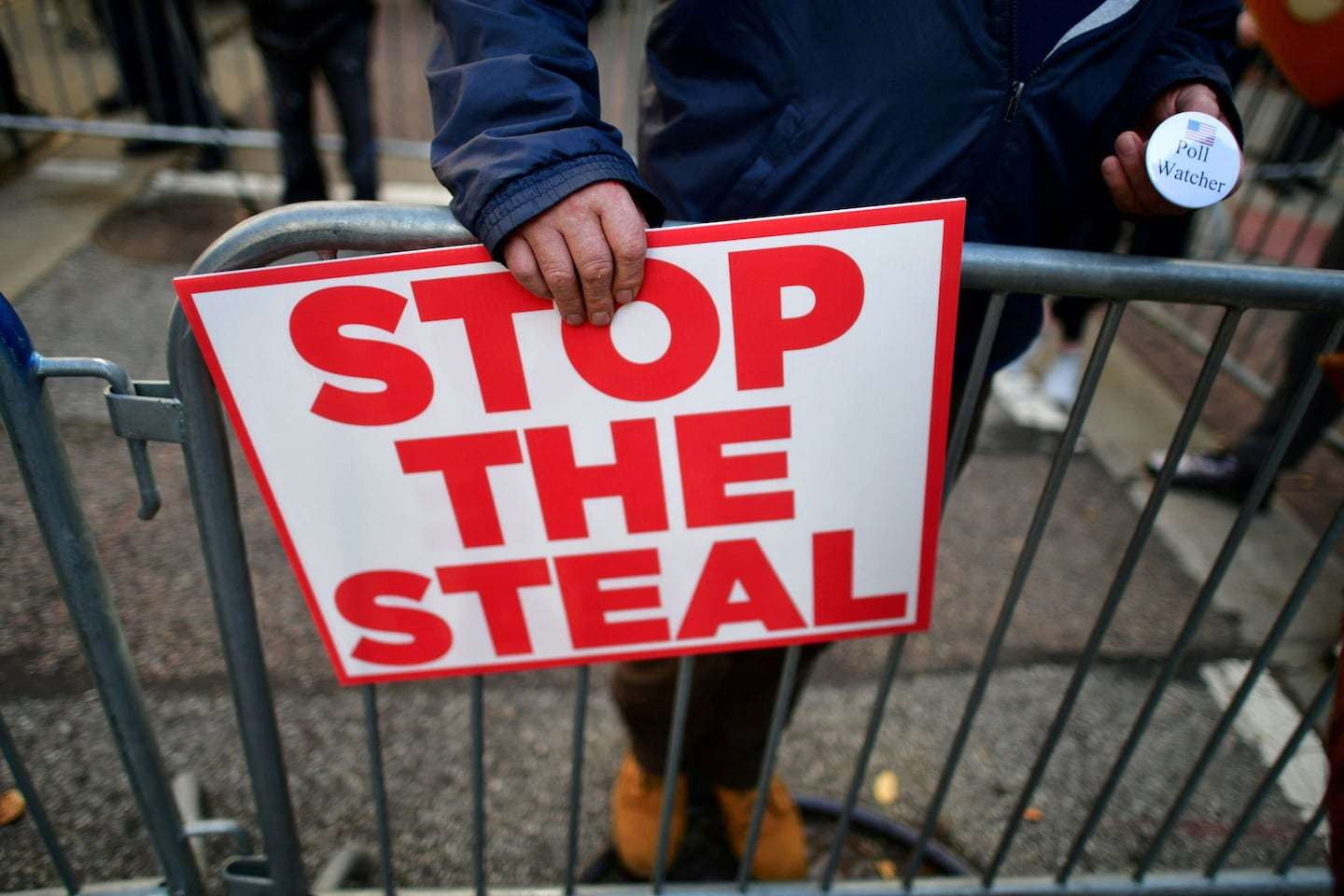During a CNN appearance Sunday, Arizona Republican gubernatorial candidate Kari Lake tried to make two claims at the same time: that the results of the 2020 presidential election couldn’t be trusted and that her elevation of false claims about voter fraud weren’t damaging confidence in elections.
False fraud claims are inseparable from declining confidence in democracy

No, the candidate replied, adding that “we are going to make sure our elections are safe and secure for Democrats, independents and Republicans alike.” In other words, she’s saying they aren’t safe and secure now — which is what Bash asked.
But there’s no real question that false claims about rampant voter fraud, like those Lake energetically propagates, are a central reason that Republican confidence in American democracy is sagging. New polling reinforces that idea. And, unlike other concerns about democracy, this particular concern is completely unmoored from reality.
On Wednesday morning, the Associated Press released the results of a poll conducted by its partner NORC. Among the questions asked was one in which respondents evaluated the state of American democracy.
Most Democrats said that the system is working at least somewhat well. Independents were about evenly split. Republicans, though, were much more likely to express skepticism about the system.
This result is different from other recent surveys, I’ll note. A recent New York Times-Siena College poll, for example, found broadly equivalent concern about democracy across partisan groups, though the question was worded differently. Regardless, on this question, this measure, there’s a wide divide between the parties. Republicans are much more likely to say that democracy isn’t working well than are Democrats.
Why? Well, the AP also asked how confident respondents were that the results of the midterm election would be counted accurately. This gets to the heart of the democratic system, of course — and nearly half of Republicans say that they have at most only a little confidence that the votes will be accurate.
Interestingly, the AP asked the same question in September 2016, a few weeks after Donald Trump began energetically suggesting that any loss in Pennsylvania (in particular) would be a function of fraud. Over the past six years, the confidence Democrats have in the accuracy of vote-counting has soared. Confidence among independents has plummeted. Republicans were skeptical then and remain skeptical now.
Part of the reason that Trump made those claims about Pennsylvania, of course, was that he knew there was an undercurrent of skepticism about vote-counting — particularly in urban areas — within his party. Did his claims about fraud elevate concerns about the accuracy of the count before the AP’s September 2016 poll? Or was that poll measuring existing sentiment that Trump wanted to leverage? It’s hard to say. (Of course, no such fraud ever manifested.)
But now we come to the AP’s next question: How much of a problem in U.S. elections are gerrymandering, blocking eligible voters or illegal votes? Both parties agree that gerrymandering is a problem, though Democrats are more likely to hold that view.
More than half of Republicans, though, say illegal voting is a major problem. Nine in 10 say it’s at least something of a problem. And the path from that to concern about the election system is direct and clear.
Again, illegal voting is not a major problem in American elections. It happens, yes, but sporadically. Only rarely does it occur at a scale that might affect an election, and those elections are invariably small in scale (local races, for example). The effort to cast fraud as rampant and deciding is extremely useful to Trump’s desire to soothe his ego, but it lacks any evidence in reality. What’s more, there is no election in which one should feel more confident that no rampant fraud occurred than the 2020 contest. After all, when before has a large percentage of the country spent two years examining and reexamining what happened without finding any credible evidence of wrongdoing?
The AP asked a similar question about fraud in 2016. Then, it asked whether fraud happened a great deal or only sometimes. Then, half of Republicans said it happened a great deal. Comparing an apple with a different variety of apple, 58 percent of Republicans in the new poll said illegal voting was a major problem.
The question, then, is why 6 in 10 Republicans think fraud is a major problem. Where does this objectively false belief originate? The answer is not hard to establish: Republican leaders have spent decades claiming that fraud is rampant, setting the framework for Trump to dramatically scale those claims upward after his 2020 loss. And that provided an electoral opportunity for candidates like Lake who wanted the support of his base.
The result? A Republican electorate that fervently believes that illegal voting is a huge problem — and that democracy itself is failing. That’s a belief that makes it easier for Trump to wave away his loss, yes, but also makes it easier to prevent Republican losses in the future by rationalizing pushback against valid results or implementing systems that make voting more restrictive.
Either of which are valuable long-term political goals for people like Kari Lake.






